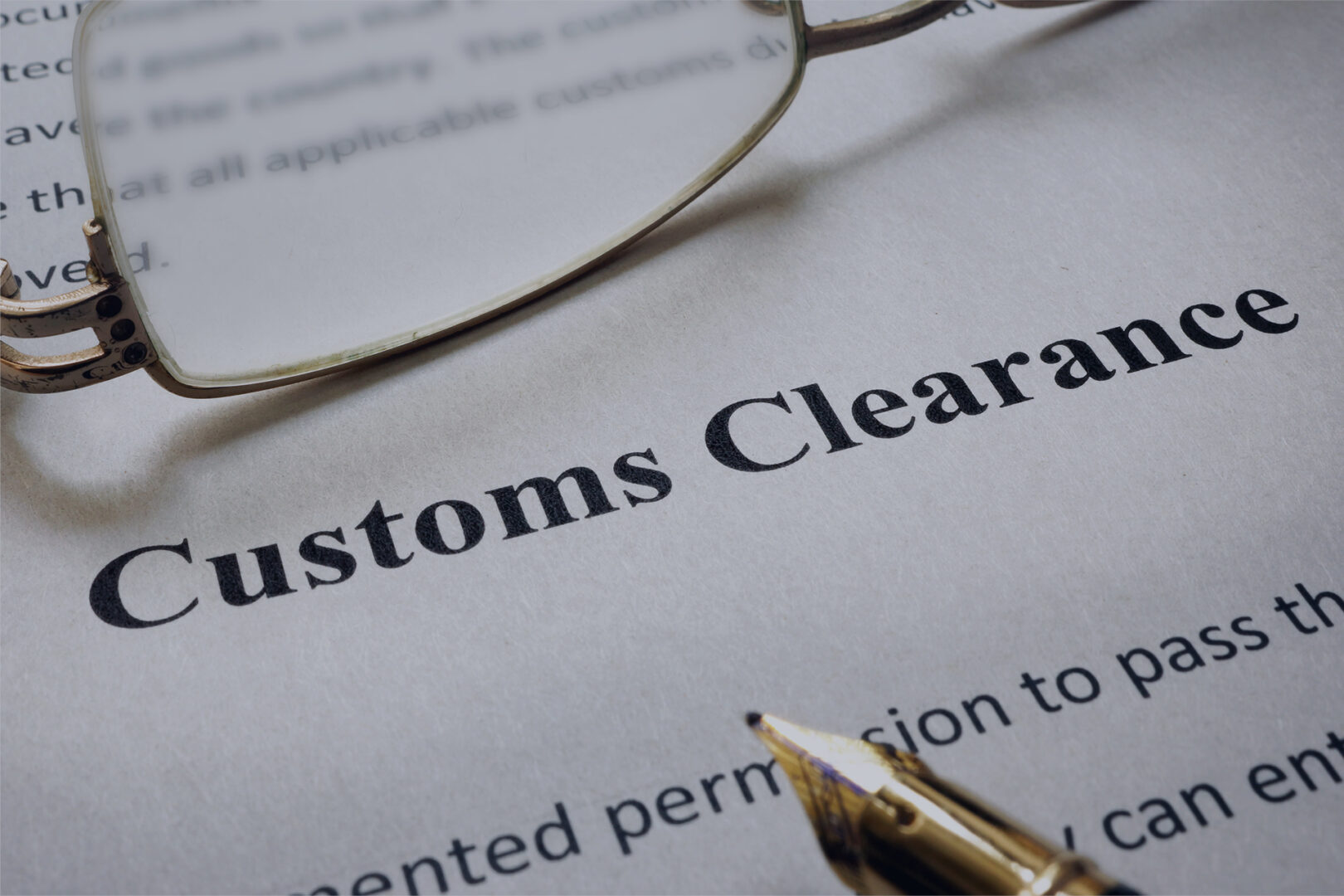

Recently, cases of adjustment by customs authorities of the customs value of imported goods for the amount of royalties that the company pays to a foreign rightsholder for a trademark on the goods (or applied to goods subsequently) have become more frequent. This, in turn, leads to additional charging of customs duties, incl. “Import” VAT, as well as bringing to administrative responsibility.
These risks are based on the existence of the provisions provided in paragraphs. 7 p. 1 of Art. 40 of the Customs Code of the Eurasian Economic Union. In accordance with this clause, when determining the customs value of imported goods at the cost of a transaction with them, license and other similar payments for the use of intellectual property, including royalties in an amount not included in the price, are added to the price actually paid or payable for these goods.
That is why recently many companies are faced the fact of customs value adjustment by customs officers. Judicial practice contains a lot of examples of this situation. In this case, in most cases, decisions are made in favour of the customs authorities.
According to the established judicial practice at the level of the Supreme Court of the Russian Federation and the Supreme Arbitration Court of the Russian Federation, license payments for the use of intellectual property should be taken into account when determining the customs value (Determinations of the Supreme Court of the Russian Federation of 17.02.2021 No. 310-ES20-23536 in case No. A23-7331 / 2019, dated June 19, 2017, No. 305-KG17-2951 in case No. A40-228733 / 15, dated March 21, 2016, No. 307-KG15-14266 in case No. A56-53020 / 2014, of the Supreme Court of the Russian Federation dated March 12, 2015, in case No. 307-KG14-427, A56-31657 / 2013, of the Supreme Court of the Russian Federation No. 305-KG14-78 in case No. A40-17523 / 2013-147-164, ruling of the Supreme Court of the Russian Federation dated March 21, 2016, No. 307- KG15-14266 in case No. A56-53020 / 2014, the Supreme Arbitration Court of the Russian Federation dated 08.11.2013 No. SAC-15095/13 in case No. A17-5240 / 2012, the Supreme Arbitration Court of the Russian Federation dated 07.03.2013 No. SAC -2316/13 case No. A40-139377 / 10-148-926).
Thus, if a Russian importer imports goods that will subsequently be sold under a certain brand, and at the same time license fees are not included in the customs value of the goods, then there is a high risk that customs officers will charge additional payments and “import” VAT (subject to the above conditions) … And here it is not important who exactly is the copyright holder of the trademark: a foreign supplier of goods or another person.
However, there is one important point: royalties should be taken into account when determining the customs value only if the following conditions are met in aggregate (clause 17 of the Resolution of the Plenum of the Supreme Court of the Russian Federation of November 26, 2019, No. 49):
– royalties are related to imported inventory;
– payment of license fees is associated with the acquisition of inventory items.
In the Regulation on the addition of license and other similar payments for the use of the intellectual property to the price actually paid or payable for imported goods, approved. The recommendations of the Board of the Eurasian Economic Commission dated November 15, 2016, No. 20 (hereinafter referred to as the Regulation) provide detailed explanations and examples. So, in clause 9 of the Regulation it is said that when determining whether the payment of royalties is related to the fact of the purchase of goods, the buyer is unable to purchase imported goods without paying royalties. Such an indication is decisive. It is also additionally indicated that in all cases the decision on whether the payment of royalties is related to the fact of the purchase of goods should be made taking into account the analysis of all the factors and circumstances accompanying the sale and import of these goods. In this case, the following can be taken into account as such factors:
– the presence in the contract for the supply of goods, provisions concerning the payment of royalties;
– the presence in the license agreement of provisions concerning the sale of imported goods;
– the presence of a contract for the supply of goods, and (or) in the license agreement provisions on the possibility of terminating the contract in case of non-payment by the buyer (licensee) to the copyright holder;
– the presence in the license agreement of a condition prohibiting the manufacturer (seller) to manufacture and (or) sell to the buyer goods created using the intellectual property of the copyright holder, in case of non-payment of the corresponding remuneration to the latter ;
– the presence in the license agreement of a condition that allows the copyright holder to exercise control over the production of goods or their sale by the manufacturer (seller) to the buyer (sale of goods for export to the customs territory of the Union), which would go beyond quality control.
As you can see, many factors must be taken into account and this gives companies a chance to resolve the litigation in their favour.
The jurisprudence contains examples that are positive for organizations:
– Resolution of the Arbitration Court of the Volgo-Vyatka District dated 04/12/2021 No. F01-1145 / 2021 in case No. А43-12164 / 2020 (By the ruling of the Supreme Court of the Russian Federation dated 06/30/2021 No. 301-ES21-9595 it was refused to transfer the case for review);
– Resolution of the Arbitration Court of the North-West District of June 25, 2020, No. F07-6006 / 2020 in case No. A56-64382 / 2018.
Thus, in each specific situation, it is possible to talk about the risks and make a forecast of the trial only after a complete analysis of the available documents.
Also, to resolve the issue of whether it is necessary to include royalties in the customs value of imported goods and materials or not, practical examples contained in the Appendix to the Regulation will be of great help. There are also examples not only for resellers of goods but also for those companies that import raw materials or components with an applied trademark into the Russian Federation – for use in the production of finished products, which will also be applied with this trademark (examples 5, 6, 7 and 10 of Section I of the Appendix). For example, in some cases, the customs value of raw materials must be formed taking into account royalties (example 7 of section I of the Appendix), in others – without taking into account (examples 5, 6, and 10 of section I of the Appendix).
Judicial practice for manufacturing companies is also contradictory, since, as noted earlier, in each specific case, all existing factors in the aggregate have an impact. For example, in a dispute considered in the Arbitration Court of the Volgo-Vyatka District dated 07.07.2020 No. F06-63000 / 2020 in case No. A57-20607 / 2019 (The decision of the Supreme Court of the Russian Federation dated 02.11. ) the decision was made in favour of the customs officers. And in the Resolution of the Arbitration Court of the Volgo-Vyatka District dated 10.26.2020 No. F01-12928 / 2020 in case No. A43-49692 / 2019 (The decision of the Supreme Court of the Russian Federation dated 15.02.2021 No. 301-ES20-23819 refused to transfer the case for review) the dispute was allowed in favour of the organization.
We also draw attention to the fact that not only royalties but also other amounts, for example, dividends, can become grounds for increasing the cost of customs value. And this is despite the fact that with regard to dividends in clause 9 of Art. 39 of the Customs Code of the Eurasian Economic Union explicitly states that “the price actually paid or payable for imported goods refers to goods transported across the customs border of the Union, in connection with which dividends or other payments transferred by the buyer to the seller, if they are not related with imported goods are not included in the customs value of imported goods ”.
Thus, dividends are not included in the customs value only if they are not related to the imported goods. Therefore, if the customs authorities reveal the connection between the paid dividends and the imported goods, then they can charge additional customs payments based on the customs value increased by the amount of dividends. Similar precedents have already arisen in practice.
Moreover, in this regard, there is a private explanation of the Ministry of Finance of the Russian Federation, which says that if foreign trade purchases of goods from a foreign counterparty are carried out by a Russian buyer from a single person who, at the same time, is the only shareholder of this buyer, then the dividends paid to the seller do not actually differ from the subject. inclusion in the customs value of goods of income received as a result of subsequent sale. Judicial practice in this situation, in contrast to the situation with royalties, is extremely small today. However, the decisions we found were made in favour of the organizations (see, for example, Determination of the Supreme Court of the Russian Federation dated 07.04.2021 No. 307-ES21-2873 in case No. A56-137218 / 2019).
Further, if the customs authorities have charged additional customs payments and the organization has decided not to dispute these actions, the question arises as to where to refer the additional amounts. If we are talking about customs duties, then they should be included in the composition of expenses taken into account when taxing profits (Letter of the Ministry of Finance of the Russian Federation of November 27, 2019, No. 03-03-06 / 1/92034). As for the additionally accrued amount of “import” VAT, the organization can accept it for the deduction. In this case, the right to deduction arises in the tax period in which there was an additional payment of “customs” VAT on the basis of the adjustment customs value (clause 2 of article 171 of the Tax Code of the Russian Federation, Letter of the Ministry of Finance of the Russian Federation dated July 25, 2011, No. 03-07-08 / 239, Department of the Ministry of Taxes and Duties RF in Moscow dated 07.07.2003 No. 24-11 / 36764). Thus, VAT paid on the basis of the adjusted customs value should be reflected in the purchase book for the quarter in which the additional payment was made. At the same time, the general rule applies, according to which the VAT deduction can be transferred to subsequent quarters within 3 years from the moment after the registration of those acquired by the taxpayer on the territory of the Russian Federation (clause 1.1 of article 172 of the Tax Code of the Russian Federation).
In conclusion, we note that we are ready to analyse your existing contracts for the presence of appropriate “customs” risks and conduct a customs audit. You can send a request for this audit to info@sterngoff.com with the subject line “Customs audit”.
Your application has been successfully accepted.
We will contact you shortly.
We have sent an email to your email, please confirm your subscription by clicking on the link in the email.

